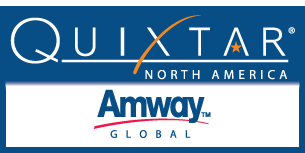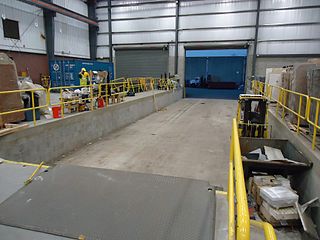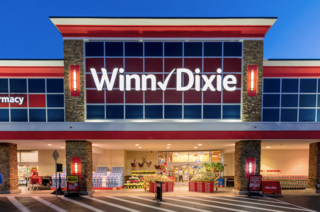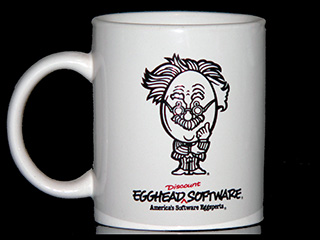Related Research Articles

The dot-com bubble was a stock market bubble in the late 1990s. The period coincided with massive growth in Internet adoption, a proliferation of available venture capital, and the rapid growth of valuations in new dot-com startups.

Dell Inc. is an American-based technology company. It develops, sells, repairs, and supports computers and related products and services. Dell is owned by its parent company, Dell Technologies.

Amway North America is an American worldwide multi-level marketing (MLM) company, founded 1959 in Ada, Michigan, United States. It is privately owned by the families of Richard DeVos and Jay Van Andel through Alticor which is the holding company for businesses including Amway, Amway Global, Fulton Innovation, Amway Hotel Corporation, Hatteras Yachts, and manufacturing and logistics company Access Business Group. After the launch of Amway Global, it replaced the Amway business in the United States, Canada and the Caribbean, with the Amway business continuing to operate in other countries around the world. On May 1, 2009, Quixtar made the name change to Amway Global and fused the various different entities of the parent company.

Distribution is the process of making a product or service available for the consumer or business user who needs it, and a distributor is a business involved in the distribution stage of the value chain. Distribution can be done directly by the producer or service provider or by using indirect channels with distributors or intermediaries. Distribution is one of the four elements of the marketing mix: the other three elements being product, pricing, and promotion.
Pets.com was a dot-com enterprise headquartered in San Francisco, U.S, that sold pet supplies to retail customers. The website was launched in November 1998 and was shut down in November 2000. A high-profile marketing campaign gave it a widely recognized public presence, including an appearance in the 1999 Macy's Thanksgiving Day Parade and an advertisement in the 2000 Super Bowl. Its popular sock puppet advertising mascot was interviewed by People magazine and appeared on Good Morning America.

The list price, also known as the manufacturer's suggested retail price (MSRP), or the recommended retail price (RRP), or the suggested retail price (SRP) of a product is the price at which its manufacturer notionally recommends that a retailer sell the product.

Winn-Dixie Stores, Inc., styled as Winn✓Dixie, is an American supermarket chain headquartered in Jacksonville, Florida. Winn-Dixie operates more than 546 stores in Louisiana, Mississippi, Alabama, Georgia, and Florida. The company has had its present name since 1955 and can trace its roots back to 1925.

Webvan was a dot-com company and grocery business that filed for bankruptcy in 2001 after 3 years of operation. It was headquartered in Foster City, California, United States. It delivered products to customers' homes within a 30-minute window of their choosing. At its peak, it offered service in ten US areas: the San Francisco Bay Area; Dallas; Sacramento; San Diego; Los Angeles; Orange County, California; Chicago; Seattle; Portland, Oregon; and Atlanta, Georgia. The company had hoped to expand to 26 cities by 2001.
Commerce One, Inc. operated online auctions focused on B2B e-commerce. At the peak of the dot-com bubble, the company had a market capitalization of $21.5 billion.

CDnow, Inc. was a dot-com company that operated an online shopping website selling compact discs and music-related products. In April 1998, during the dot-com bubble, the company was valued at over $1 billion. In July 2000, it was acquired by Bertelsmann Music Group for $117 million ; shortly thereafter Amazon was contracted to operate the website. At its peak, it employed over 750 people and had offices in Fort Washington, Pennsylvania, New York City, London, and Los Angeles.

Egghead Software was an American computer software retailer. Founded in 1984, it filed for bankruptcy in 2001 and its domain name was acquired by Amazon.com.
Craig Winn is an American businessman noted for founding Value America, a tech company that failed in one of the more spectacular crashes of the Dot-com bubble in 2000.

AboveNet was a provider of high bandwidth telecommunication circuits primarily for large corporate enterprises and communications carriers in 17 markets in the United States and 4 markets in Europe. Its private optical network delivered key network and IP services and was used in financial and legal services, media, health care, retail, and government.

Vignette Corporation was a company that offered a suite of content management, web portal, collaboration, document management, and records management software. Targeted at the enterprise market, Vignette offered products under the name StoryServer that allowed non-technical users to create, edit and track content through workflows and publish it on the web. It provided integration for enterprise resource planning, customer relationship management and legacy systems, supporting Java EE and Microsoft.NET. Vignette's integrated development environment and application programming interface offered an alternative to conventional Common Gateway Interface/vi/Perl web development. StoryServer was used on many large websites including those of CNET, UnitedHealth Group, The Walt Disney Company, Wachovia, Martha Stewart, Fox News, National Geographic Channel, Pharmacia & Upjohn, MetLife, BSkyB, the 2004 Summer Olympics, and NASA.
Geeknet, Inc. is a Fairfax County, Virginia–based company that is a subsidiary of GameStop. The company was formerly known as VA Research, VA Linux Systems, VA Software, and SourceForge, Inc.
Trillium Digital Systems, Inc. developed and licensed standards-based communications source code software to telecommunications equipment manufacturers for the wireless, broadband, Internet and telephone network infrastructure. Trillium was an early company to license source code. The Trillium Digital Systems business entity no longer exists, but the Trillium communications software is still developed and licensed. Trillium software is used in the network infrastructure as well as associated service platforms, clients and devices.
CHS Electronics is a former multinational distributor of microcomputer products, personal computers, peripherals, networking products, and software.
Tradex Technologies Inc. was a developer of Java-based B2B e-commerce software. It primarily operated in the industries of financial services, telecommunications, plastics, and foodservice. It offered a platform for vertical trading hubs, another for large enterprises, and a third for the distributor channel segment. The software used JavaBeans technology.

Gadzoox Networks, Inc. produced hardware and software for the entry-level storage area network market. In 2000, at the peak of the dot-com bubble, the company was valued at $2 billion; however, after filing bankruptcy in 2002, its assets were acquired by Broadcom in 2003 for $5.8 million.
References
- 1 2 3 4 5 Perine, Keith (29 August 2000). "An American Dream Gone Bad". Computerworld.com.au. IDG Communications, Inc. Retrieved 21 December 2023.
- ↑ News, Bloomberg (1999-12-30). "Company News; Value America Plans to Cut Nearly Half Its Work Force". The New York Times. ISSN 0362-4331 . Retrieved 2019-07-28.
{{cite news}}:|last=has generic name (help) - ↑ Bijlefeld, Marjolijn. "Crazy Craig's C-Commerce" Archived 2008-01-05 at the Wayback Machine , Virginia Business, January 2000. Retrieved September 10, 2007.
- 1 2 3 Wolverton, Troy. "Value America files for bankruptcy, lays off 185", CNET News.com, August 11, 2000. Retrieved September 10, 2007.
- ↑ Value America Customer Ratings, Reviews and Prices at ResellerRatings
- ↑ Federal Trade Commission. "Analysis of Proposed Consent Order to Aid Public Comment", June 2000. Retrieved September 10, 2007.
- ↑ Miles, Stephanie."E-tailer Value America cuts staff, loses execs" CNET News.com, December 29, 1999. Retrieved September 10, 2007.
- ↑ News Service (no author identified), "Value America To Sell Off E-Services Business", The Washington Post , October 23, 2000, page E16. Retrieved September 10, 2007.